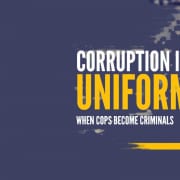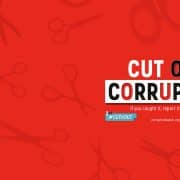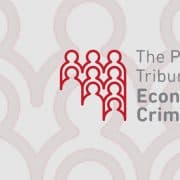|
Getting your Trinity Audio player ready...
|
By Zola Valashiya
Remember that high school mantra “Crime doesn’t pay” that was constantly drummed into us growing up? Well, here’s the thing – crime is paying, and it is paying big.
So much has happened in South Africa lately I cannot emotionally keep up. From grand airport heists to dubious cabinet reshuffles, and a cornucopia of public events that may install a sliver of doubt, even in the staunchest patriot, about whether we know what we’re doing.
Surely, there is an assault upon our constituted society, a brazen middle finger to our criminal justice system, a derisive sneer at our political competency, and a deliberate subversion of our laws through judicial sabotage. These actions corrode the very pillars of our democratic republic and simultaneously, erode our general moral sentiments as citizens.
But why does corruption persist? Let’s face it, many of us have participated in ‘small’ (or big) corrupt activities that grease the wheels of personal benefit. Ironically, corruption is often incredibly efficient, because it gets the desired results at a fee I am willing to pay. Moreover, it does this even better than the established yet inefficient formal system. How is the 21st century homo-economicus (our economic mind) supposed to resist this setup in a fast-paced world pivoted on instant gratification? The modern economy’s most valuable commodities are speed and convenience, and we love speed and convenience.
Demand and supply drive corruption where inefficiency exists
Economic activity makes humans behave in a particular way. It influences how we make decisions (rationality and choice), how we respond to value (quantified in price) and how we perceive risk and benefit, all in the name of maximizing personal happiness. This pursuit is driven by a demand and enabled by a supply. Both result from a gap, breakdown or inefficiency in an existing system, thus any intervention by a keen entrepreneur to exploit this systemic weakness would make for an attractive and quite lucrative undertaking indeed.
Thus inefficiency can breed corruption, and the demand is usually fuelled by a frustration that has transformed a forgo-able want into a burning need. For instance, maybe I’m someone who relies primarily on public transport, but now possessing a driver’s license is a prerequisite to a job I’ve applied for. I’ve also heard that the formal process takes too long and I need a license quickly – not to mention the ‘incompetency’ stigma about government-run departments.
The risk calculus now becomes skewed. “On the one hand I need the license urgently, but on the other hand, buying a license is a crime and I could get arrested. If I don’t get the license I could be overlooked for the job and miss future opportunities. But if I do get it, I stand a good chance of getting the job and can even buy a car in future.
“Alright I’m doing it. I’ll buy a license. Besides, the police never investigate these things anyway.”
Enter the supply chain that can meet the demand, quickly and quietly. The proprietor of this enterprise is often an official working in the licensing department and is endowed with the necessary authority to issue the license or at least hasten the process significantly. By now they have figured out that they can make a little extra on the side if they fast-tracked certain applications through the slow, overwhelmed and under-capacitated system. But, it’d be too risky and a lot of work to go out and get clientele on their own. They do have a fulltime office job after all, and it may be overtly conspicuous if lines of people swamped the office every day specifically looking for them.
This dilemma is resolved by co-opting a solicitor (usually a runner, driving instructor or driving school) that will interface with the public and directly offer the illicit service. The solicitor and the proprietor make some kind of profit-sharing arrangement and this way, the proprietor makes money and remains a silent partner.
The solicitor is incentivised by a simple economic fact: the more people I get, the more money I make. They leverage a promise to the public – a guarantee almost – that an authentic license can be issued quickly and easily. They build a reputation on their ability to deliver on that promise and get more ‘clients’ through referral. They provide a full service package that includes driving lessons and someone to broker a deal on your behalf – the price for such a service can range from R2 000 up to R6 000.
Law-abiding citizen vs serving the self at any cost
Conceptualised in this manner, the moral conflict between our homo-economicus mind and our homo-sociologicus (sociological mind) becomes apparent. From which persona do we source the values that influence our behaviour?
Michael J. Sandel – a Political Philosophy lecturer at Harvard University – frames this inquiry exquisitely in his article “The Moral Limits of Markets”, published 31 December 2012 on Project Syndicate.
“…[W]ithout realizing it, we have drifted from having market economies to becoming market societies. The difference is this: A market economy is a tool – a valuable and effective tool – for organizing productive activity. A market society, by contrast, is a place where almost everything is up for sale. It is a way of life in which market values seep into social relations and govern every domain.”
Unlike the economicus who acts in pursuit of personal interests and draws his values from market-orientated thinking, the sociologicus acts to fulfil social roles in civic life according to societal values (honour, integrity, patriotism) and expectations for the greater good of society. This side wants to be a good, law-abiding citizen that respects and protects our State institutions, while the economicus wants/needs something that primarily benefits the self at any cost – even at the cost of society.
The momentum of the market is overwhelming and its countless sales deals are irresistible. We derive a great deal of satisfaction from economic activities. The body is then flooded with feel-good endorphins which reinforces the same stimulating behaviour. Thus most of the time, in some way or another, we engage our economicus mind. Our sociologicus mind doesn’t have the benefit of a strong moral infrastructure designed to reinforce socially good practices at a deeper level, moreover, one that can successfully resist the dominant nature of the economicus.
Ultimately, the more we participate in corrupt activities (summoning our economicus mind) the more we desensitise our own moral sentiments – meaning that our sociologicus mind becomes less responsive to the moral imperatives of our world. The more we respond to the price-value of human activity, the less capable we become in valuing price-less social practices.
If corruption is demand driven, and its corollary supply is made available, the market that emerges summons our insatiable economicus mind. We should actively work to build an internal defence to strengthen the sociologicus mind and make our social values inaccessible to our economicus mind. Because if the maxim everyone has their price continues to ring true, then invariably, everyone will pay the cost.
Zola Valashiya is based in Johannesburg and currently works at Corruption Watch. He is a law graduate from the University of the Free State and undertook a Masters in Law as a Mandela Rhodes Scholar at the same university. He studied public policy and public administration with the School of Public Policy at the Central European University, Budapest. Zola also runs his own non-profit called Debate Afrika, which uses debate and public speaking as tools for education and youth development.









